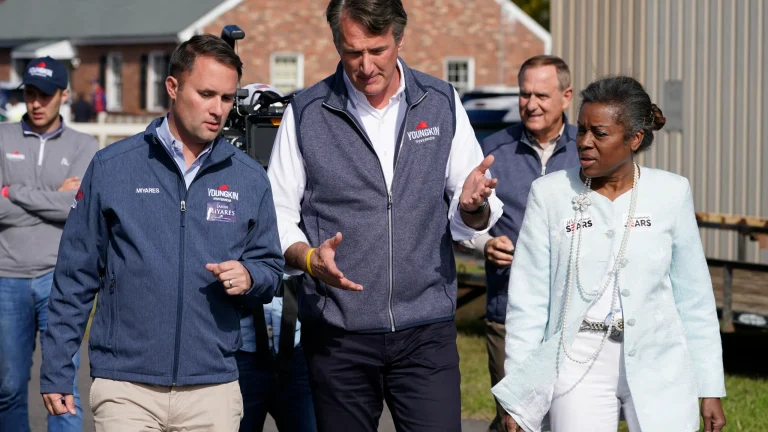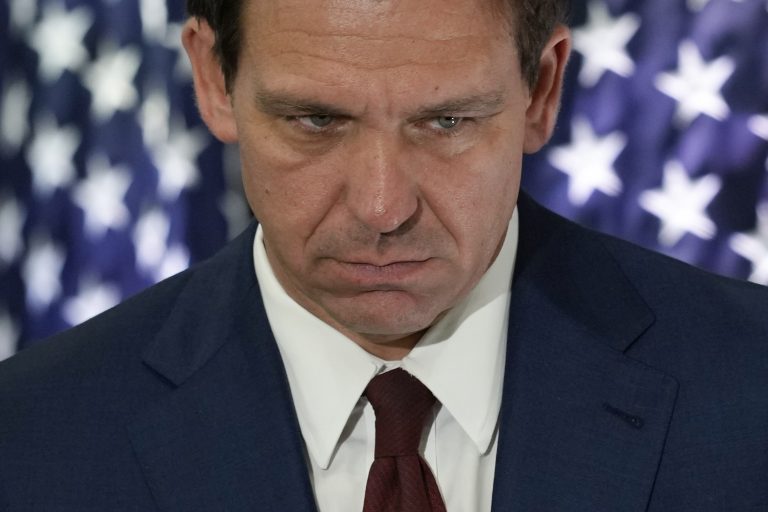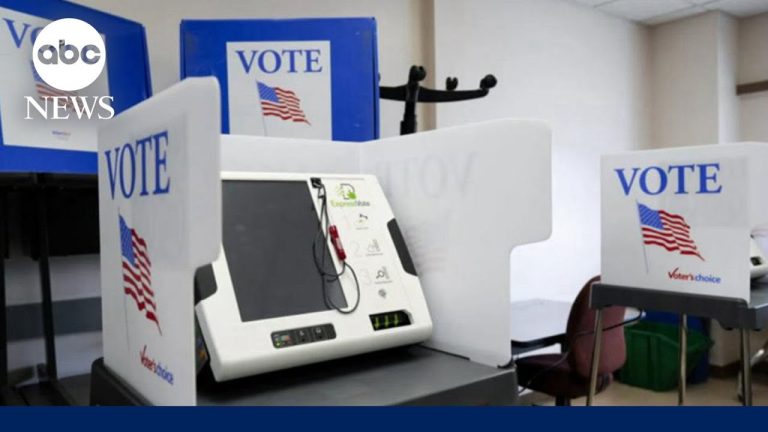The announcement is the latest step toward expanding health care to the state’s working poor.
The top leaders in North Carolina’s legislature reached an agreement that is expected to expand Medicaid coverage. The momentous deal, announced Thursday, is the culmination of more than a decade of political wrangling and a Republican change of heart.
The deal will allow North Carolina, at no cost to state government, to give health insurance to hundreds of thousands of the state’s working poor. The federal government will pay for 90% of the cost, and the rest will be covered by a new tax on hospitals and insurance companies.
House Speaker Tim Moore said that factor — as well as the fact that the federal government will also pay North Carolina $1.8 billion extra if expansion passes — was a big motivating factor for GOP leaders like him to change their minds and support Medicaid expansion, after spending over a decade fighting against it.
“I mean, it’s staggering numbers,” Moore said.
Democrats have pushed for expansion for years. The state had around 900,000 uninsured residents in 2021 — nearly one in every 10 people — and expanding Medicaid would allow most of those people to have health insurance.
But Republicans fought it, in part because of its association with former Democratic President Barack Obama — Medicaid expansion only exists because of Obamacare — but also because of fears that Republicans in Congress would repeal Obamacare, leaving states on the hook for the extra costs of expansion. After national Republicans failed to repeal Obamacare under President Donald Trump, despite controlling both Congress and the White House, it put local GOP leaders more at ease about the future of the program.
Another major factor that caused GOP lawmakers to change their minds in 2022: The 2021 stimulus package, signed into law by Democratic President Joe Biden, that offered signing bonuses to states that expanded Medicaid — in North Carolina’s case, the $1.8 billion that Moore mentioned.
Biden reacted happily to Berger and Moore’s announcement Thursday. “This is what I’m talking about,” Biden said in a statement, adding for national context: “That’ll be 40 states who’ve expanded. 10 more to go.”
After Moore and Berger announced their new stance on expansion last year, the only work left was to negotiate the exact details. And that work is now done, the state’s top legislative leaders announced Thursday morning. They finally have a deal.
“What a huge announcement this is for North Carolina,” House Speaker Tim Moore said.
Senate leader Phil Berger said while all the details likely won’t be public this week, there will be a bill filed soon and the legislature “will move with all deliberate speed” to pass it into law.
Berger and Moore didn’t tell Democratic Gov. Roy Cooper about the deal in advance, they said. But he quickly responded to the news with a written statement calling it “a monumental step that will save lives.”
There is, however, still a small chance the deal could fall apart. While expansion has never had a better chance of passing, Berger and Moore said they want to tie Medicaid expansion to the state budget. That can be a thorny process, since even though both the House and Senate are under Republican control. The two rarely see eye-to-eye on budget negotiations.
Cooper has vetoed past budgets that didn’t contain Medicaid expansion, and Democrats in the legislature backed him up by not overriding his veto, even though it meant state spending went stagnant for two years.
However, Democrats would be unlikely to block a state budget that did contain Medicaid expansion.
Democratic legislative leaders Rep. Robert Reives and Sen. Dan Blue both noted in press releases Thursday that Democrats have been trying to make this a reality for years.
“This is long overdue,” Reives said. Blue said Medicaid expansion will be “a lifeline for working adults and rural communities.”
It’s not known yet when people will be able to start signing up for insurance, but it likely won’t be for months.
The budget is expected to pass the legislature this summer or fall — Moore said Thursday he sees “no reason” why it shouldn’t be done by June. That’s when the budget is normally supposed to be done, although in the recent past negotiations have sometimes stretched on for months.
Cooper urged lawmakers to move faster, by not tying Medicaid to the budget and passing it as a standalone bill now.
“Since we all agree this is the right thing to do, we should make it effective now to make sure we leverage the money that will save our rural hospitals and invest in mental health,” Cooper wrote.
Berger and Moore each, however, indicated Thursday that’s not going to happen.
What’s in the deal
Berger and Moore agreed last year with Democrats on the need to expand Medicaid, which would give health insurance to around half a million North Carolinians. But they’ve disagreed on how exactly to do so — until now.
The Senate wanted to tie expansion to a number of other large regulatory changes to the health care industry. The House wanted to pass only Medicaid expansion, with nothing else attached.
On Thursday, Berger said they reached a compromise where some but not all of the extra provisions popular in the Senate will be part of the bill.
That includes a partial repeal of the state’s Certificate of Need laws, which limit competition in the health care industry, and which hospitals have lobbied heavily to keep in place.
However, a proposal to allow some highly trained nurses to take on more duties without a doctor’s supervision did not make the final cut. Nurses have to pay doctors for that supervision, and lobbying groups for doctors fought hard against the proposal.
Berger said he’d keep fighting for that nursing change in a separate bill, called the SAVE Act, but in the end getting Medicaid expansion approved was worth reaching a compromise.
“I’m very comfortable with it,” Berger said of the Medicaid deal. “It’s a good agreement for the state.”
Extra money for the state
Moore and Berger said they’ve been meeting with their top deputies on health care issues for the last few weeks, and were up late Wednesday night hammering out the final compromise that they announced Thursday morning.
If the state does expand Medicaid, it will receive billions of dollars annually from the federal government. Part of that is from a program called HASP, which the state Department of Health and Human Services said can be used to “support behavioral health, public safety support, rural health care, and other needs.”
And then there’s the $1.8 billion from the Biden stimulus package, which lawmakers can spend on whatever they want.
How to spend that money will be a fight for another day. The House and Senate each have their own ideas.
“We’ll have to find something else to fight about,” Berger said jokingly.
Republican Rep. Donnie Lambeth, a longtime backer of Medicaid expansion who is also a top budget writer, recently told WRAL News that he’d like to use the money to revamp the state’s mental health care system.
Berger noted that many of the changes the bill will make to Certificate Of Need laws, which will allow for faster construction of new hospitals in addition to other changes, are going to be targeted specifically at the mental health sector.
Outside of the Medicaid negotiations, the Senate also recently passed a bill to fast-track new mental health care beds at a facility near Durham, specifically for adolescents.
Children with serious mental health needs around the state have sometimes had to live in hospital emergency rooms for weeks, even months, because no beds were available in mental hospitals, WRAL has reported.
Source: https://www.wral.com/top-republican-lawmakers-reach-deal-on-nc-medicaid-expansion/20744101/











